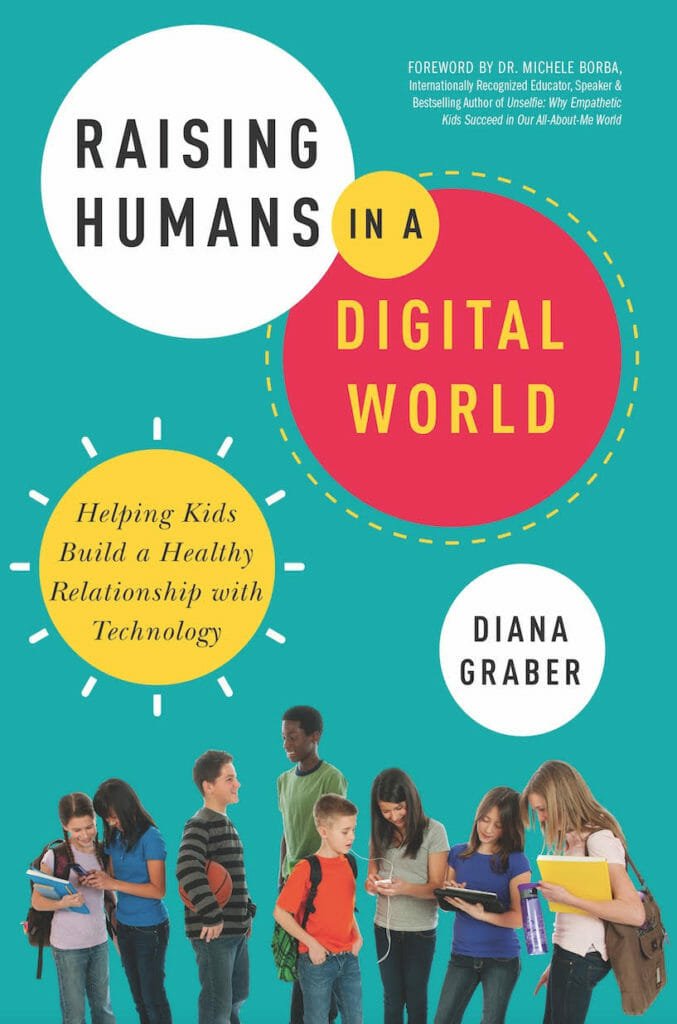By Diana Graber
In this age of algorithms and bots, learning how to be human is more challenging than ever. Text messages are curt, Siri doesn’t expect a thank you, and autoresponders can’t detect when the sender needs a kind word or a hug.
But parents can raise kids who will wield technology with empathy, understanding, thoughtfulness, compassion—and all the other age-old human capacities that make life worth living—and it’s easier than you think.
It is, in fact, like building a house.
Start With a Strong Foundation
While we don’t know much about the long-term impact of today’s devices upon young children, we do know what young children need most. They need face-to-face interaction with loving human beings. A screen—regardless of whether it’s a TV, tablet, smartphone, gaming console, computer, or even an internet-connected toy—simply can’t deliver the same experiences as the real world. The research on this is indisputable.
Rich experiences in a real, three-dimensional world help kids gain social skills, emotional self-control, creativity, resilience, and most of all, the ability to get along with other people and to see things from other perspectives. These are skills they will need in spades when they go online.
Build A Sturdy Structure
With a strong foundation in place, children will need a sturdy structure to help them withstand any digital storms that may blow their way. Imagine this structure being held up by these four pillars of knowledge:
Reputation Management: Your children must learn that anything, and everything, they post online will stay online forever. It will potentially be seen by anyone, and everyone. And people will judge them by this information. Be certain your children understand this fundamental aspect of online life.
Screen Time: Help your children learn how to balance their online and offline lives. They will need your help knowing how, why, and when to disconnect from powerful devices that are designed to hijack their attention.
Safe Relationships: Before your kids use technology to make and maintain relationships via online games, social media, and texting, be sure they know how important it is to treat others respectfully and kindly online. Tell them what to when they see others being treated cruelly too.
Privacy: Explain to your children what information is safe to share online, and what is not. Even more importantly, be sure they know the cost of joining a “free” social network or getting “free” results from Google. That cost is their personal information.
Join Vibrant Online Communities
With a strong foundation and sturdy structure in place, your children will be eager, and ready, to connect and engage with new communities and opportunities online. Now is the time to encourage them to use digital technologies to learn, to inspire, to be inspired, and to share their unique talents with the world.
No one builds a house overnight. Likewise, helping your child build a healthy, and safe, relationship with technology will take time too. Hopefully my new book—“Raising Humans in a Digital World: Helping Kids Build a Healthy Relationship with Technology” (HarperCollins Leadership Jan. 19)—can help. It’s packed with advice from over 40 digital experts and includes simple activities that any family can slip into their busy day to help with this building project.
The time you put into building your child’s “digital house” will be worth the effort, I promise.


